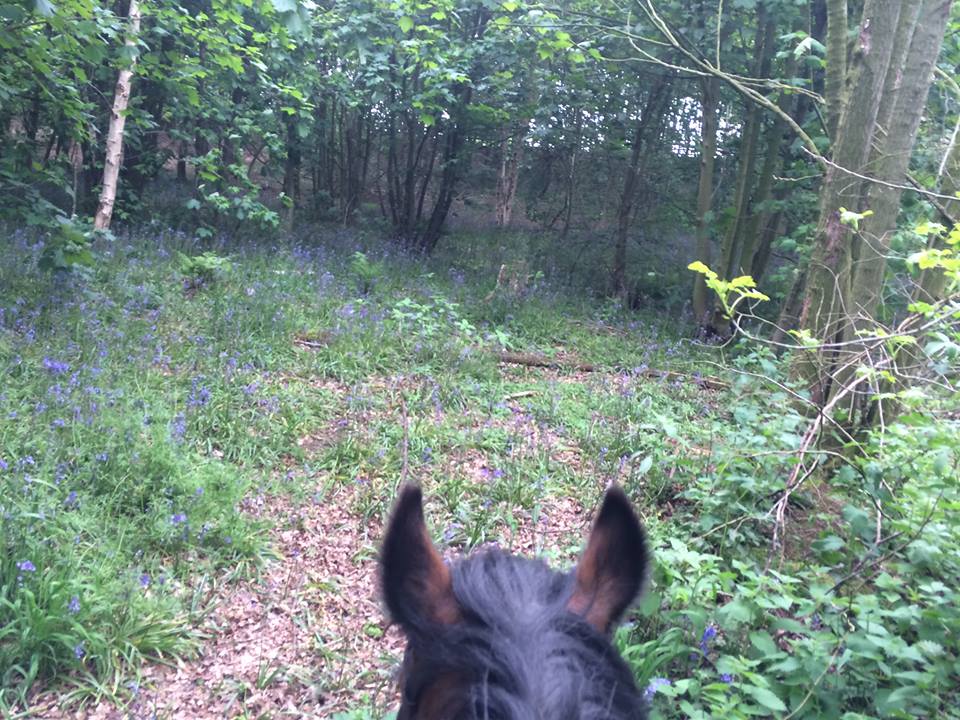“Judge a man by his questions rather than his answers.” Voltaire
If you don’t know the answer, ask better questions. When we get stuck it is often because we are looking at the challenge through a single lens. We can only see one perspective on the issue and therefore we can’t find the answer. When you learn to ask better questions you are able to open up a raft of other possible options and in time a solution can just magically appear.
I remember a number of years ago using this technique when deciding whether I should keep my horse Charlie. I had him on a three month loan contract and the three months was coming to an end. I just couldn’t decide what to do, as the two options presented to me were that I should buy him or else give him back. I wasn’t happy with either of these options. I was stuck in what decision I should make. I was getting really frustrated.
At the time it didn’t occur to me that there might be some other options. There are always options because I was looking at the situation through my lens – the lens of self. What I had failed to realise was that there were at least two other perspectives. What if I looked at the situation through the lens of Charlie’s owner – the lady I had him on loan from. What would be her thoughts?. Or what would be the observations of a friend or an outsider looking in on the problem. When I looked at my situation through these two different lenses I was able to ask much better questions and so find new solutions.
From the lens of the Charlie’s owner I was able to realise that they really wanted him to have a good home and that was more important than the sale. I also realised that they didn’t really want him back as that would have cost them money. Although they would like to sell him it was infact better for them not to have him back. From the perspective of observer I appreciated that there was a solution that was mutually beneficial to both of us. We could extend the loan term and see what transpired. Extending the decision making process was important to me because at the time Charlie had been suffering from some injuries and I was not sure what the outcome would be. I didn’t want to buy him only to discover that the injuries would not heal, but at the same time he had a big heart and I knew that I could really help him.
This way of looking at challenges and asking better questions is called Positions of Empowerment, and it really helps give a different perspective on all situations. Try it now. Imagine or draw on the floor a triangle. Make the apex the position of the observer. The left hand bottom corner is the perspective of self and the right hand corner the perspective of other. Now literally step into each of these positions and see what questions emerge, and therefore what answers come up.
When I did this exercise about my ownership of Charlie what came up would be that I could ask the owners for an extension to the loan period, That way I could get Charlie through his injuries and then make a sensible decision to buy him based on the outcome. This was never something I had initially considered. Before doing this exercise I had foolishly assumed that the only two options were to buy him or return him. And yet there are always other alternatives if we just stop, ask better questions and then reflect on the outcome to these.
When we ask meaningful questions, we step back so others can step up and think things through for themselves. The art of questioning enables dynamic and critical think-through. Finding relevant questions uncovers and reveals richer, more relevant answers.
One of the challenges is that we have often been brought up not to question things – I know I was – so being curious is a habit that I have had to develop. As the Chines Proverb goes:
“He who asks a question is a fool for five minutes. He who does not ask a question remains a fool forever.”
So here are 10 ways you can stimulate greater appreciation for asking questions:
- Learn to listen actively; don’t just wait to be heard.
- Ask yourself while listening, “What’s trying to happen here?”
- Supportively challenge assumptions without being presumptive.
- Question what’s behind the issue being focused on.
- Gain buy-in during meetings for specific time to explore alternative points of view
- If asking questions appears to irritate, seek to understand the irritation.
- Encourage thinking that isn’t based on assumption.
- Understand how others think and how they approach problem solving.
- Ask, “What questions should we be asking that we’re not asking?”
- Don’t be afraid to appear ignorant?
Now in my case with Charlie I did extend the loan agreement for another six months. Charlie’s injuries did not improve. It turned out he has arthritis in his joints from his racing career and was technically lame on three legs He was never going to be riding horse I had hoped he would. When I learnt this I spoke with the owners and was able to purchase him for the nominal sum of £1, because although he was not rideable I knew he would be an excellent horse for the leadership work I do with horses.
So as a result of asking better questions and getting a different perspective on that situation I was able to save myself a lot of money and heart ache by not having paid full sales price for Charlie and then feeling resentful when he was diagnosed with arthritis. In fact we created a win-win situation where the owners no longer had to care for him and I had a horse that I knew could add amazing value to my leadership programmes.
So what better questions can you ask today? Be curious and you might be really surprised by the results.





